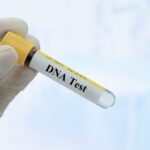In West Virginia, there is a substantial risk of motorcycle accidents. Motorcycle collisions are more likely to result in serious injuries, according to National Highway Traffic Safety Administration. Motorcycle accident deaths are also on the rise. Governors Highway Safety Association said motorcycle crash deaths “surged” last year, with 10 percent more fatalities in 2015 as compared to 2016.
As motorcycle accident death rates rise and injury remains a substantial risk for motorcycle riders, it is important to know what to do if you happen to be involved in a motorcycle collision. Responding appropriately after a motorcycle accident can make a big difference in whether you can get costs covered after a crash happens.
What to Do After Motorcycle Accidents in West Virginia
After a motorcycle accident in West Virginia, victims need to try to protect their rights. If you have been in a crash:
- See a doctor as soon as possible. Often, injuries are serious enough that paramedics must come to the crash scene and transport the motorcycle accident victim to the hospital via ambulance. Even if injuries are not that serious and you believe you are fine, you should still see a doctor right away. This way, your doctor can make sure there aren’t any internal injuries which haven’t manifested symptoms yet and help you to document any health issues cause by the crash.
- Get the details from the other driver. You want to make sure you can contact the other driver after the motorcycle accident. If the other driver was the one who caused the accident through negligence, you will need these details to be able to make a claim against the other driver.
- Obtain witness contact details. You should ensure you can contact any witnesses in case the other driver disputes your version of events regarding what happened at the accident.
- Take pictures. When possible, you want to try to take pictures of the accident scene. The pictures should be as detailed as possible and show the condition of the motorcycle and cars, debris on the road, and other details you think could be helpful in proving how the accident happened or in proving how badly you were hurt by the collision.
- Alert your insurer. You should let your own insurer know about the accident. You may need your insurer to provide coverage at some point, even if the other driver has admitted blame and/or has said he will pay for damages. If the other driver turns out not to have enough coverage, for example, you could potentially get broader compensation through your own underinsured motorist coverage.
These are a few of the key steps to take following West Virginia motorcycle accidents. Getting legal help is also important to make sure you conduct an investigation, meet deadlines for court filings, and don’t make any mistakes when speaking with insurance companies.




